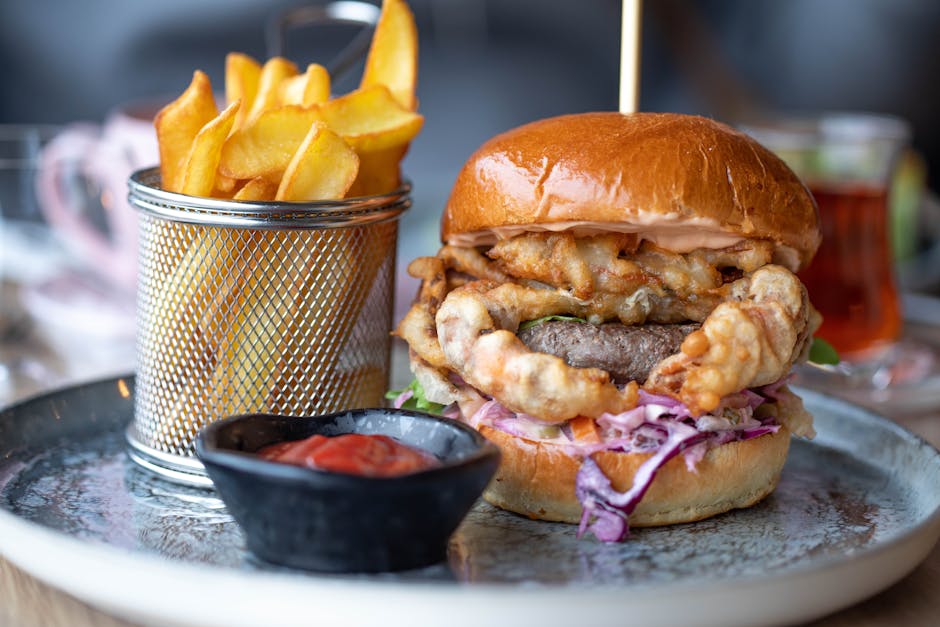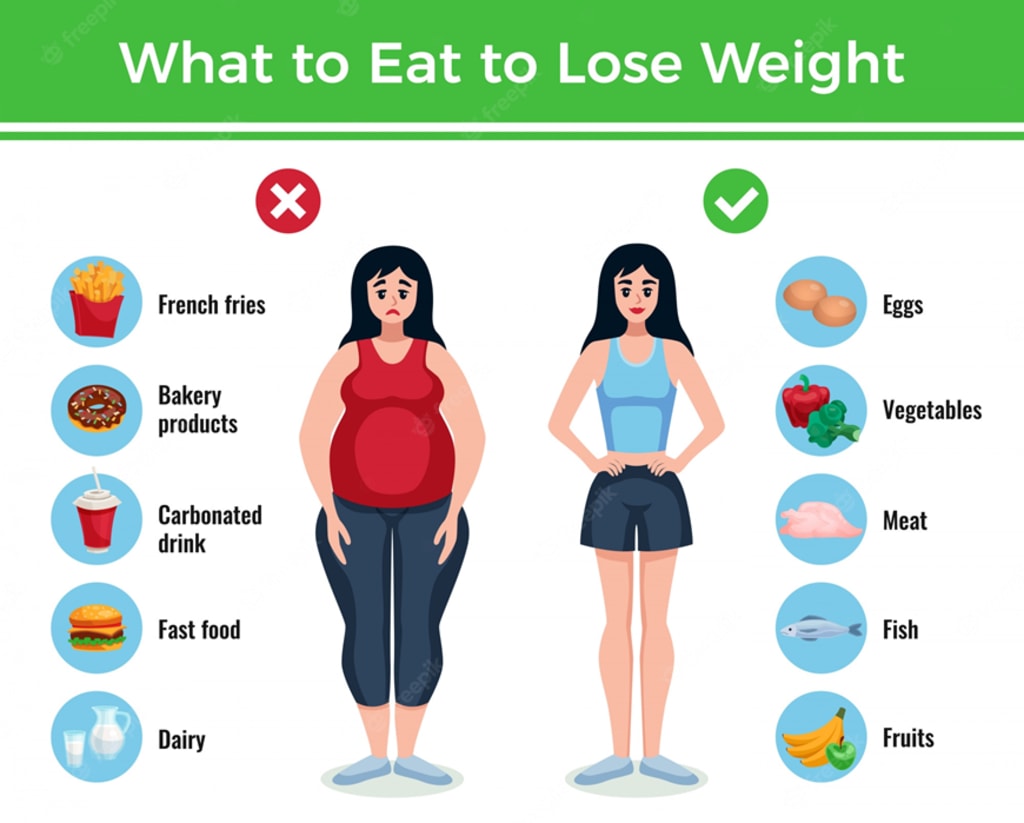Meal Plan

Benefits of Following a Meal Plan
Are you tired of constantly wondering what to eat for your next meal? Do you find yourself making unhealthy food choices because you’re too busy or too tired to cook? If so, then following a meal plan might be the solution you’ve been looking for. Meal planning is a great way to take the guesswork out of mealtime and ensure that you’re eating nutritious, balanced meals throughout the week.
One of the biggest benefits of following a meal plan is that it can help you save time and money. By planning out your meals in advance, you can make a grocery list and buy only the ingredients you need for the week. This can help you avoid impulse purchases and reduce food waste, ultimately saving you money in the long run. Additionally, having a meal plan can save you time during the week because you won’t have to spend as much time deciding what to eat or running to the store last minute.
Another benefit of following a meal plan is that it can help you make healthier food choices. When you plan out your meals in advance, you have the opportunity to ensure that you’re getting a good balance of nutrients and food groups. This can help you avoid the temptation of grabbing fast food or ordering takeout when you’re hungry and pressed for time. By having a plan in place, you can make sure that you’re eating a variety of foods that will nourish your body and keep you feeling satisfied.
Meal planning can also help you stick to your dietary goals and make it easier to track your progress. Whether you’re trying to lose weight, eat more vegetables, or cut back on sugar, having a meal plan can help you stay on track and make it easier to resist temptation. By planning out your meals in advance, you can ensure that you’re making choices that align with your goals and values, making it easier to stick to your plan in the long run.
In addition to saving time, money, and making healthier choices, following a meal plan can also help reduce stress and anxiety around mealtime. When you have a plan in place, you can relax knowing that you have everything you need to prepare a nutritious meal. This can help alleviate the stress of trying to figure out what to eat at the last minute or feeling guilty about making unhealthy choices. By having a meal plan, you can approach mealtime with confidence and peace of mind, knowing that you’re taking care of your body and your health.
Overall, following a meal plan can have a positive impact on your health, your wallet, and your overall well-being. By taking the time to plan out your meals in advance, you can save time, money, and stress, while also making healthier choices and sticking to your dietary goals. So why not give meal planning a try and see how it can benefit you? Your body and your taste buds will thank you.
How to Create a Customized Meal Plan
Are you tired of constantly wondering what to eat for your next meal? Do you find yourself reaching for unhealthy snacks because you don’t have a plan in place? Creating a customized meal plan can be a game-changer when it comes to eating healthier and saving time and money. In this article, we’ll walk you through the steps to create a meal plan that works for you.
The first step in creating a customized meal plan is to take stock of what you already have in your pantry and fridge. This will help you avoid buying duplicate items and ensure that you use up ingredients before they go bad. Once you have a good idea of what you have on hand, you can start brainstorming meal ideas based on those ingredients.
Next, think about your dietary preferences and restrictions. Are you vegetarian, vegan, gluten-free, or have any food allergies? Make sure to take these into account when planning your meals. It’s important to create a meal plan that fits your lifestyle and makes you feel good both physically and mentally.
Now it’s time to start planning your meals for the week. Take a look at your schedule and determine which days you’ll have more time to cook and which days you’ll need quick and easy meals. Planning ahead will help you avoid the temptation of ordering takeout on busy nights.
When creating your meal plan, try to include a variety of foods from all the food groups. This will ensure that you’re getting a good balance of nutrients and flavors. Don’t be afraid to experiment with new recipes and ingredients to keep things interesting.
Once you have your meals planned out, make a shopping list of all the ingredients you’ll need. This will help you stay organized at the grocery store and prevent you from forgetting anything. Try to stick to your list as much as possible to avoid impulse buys.
When it comes to actually preparing your meals, consider batch cooking and meal prepping. This can save you time during the week and ensure that you always have a healthy meal ready to go. Cook large batches of grains, proteins, and veggies that you can mix and match throughout the week.
Lastly, be flexible with your meal plan. Life happens, and sometimes things don’t go according to plan. If you have to switch things around or make last-minute changes, that’s okay. The goal is to create a meal plan that works for you and helps you stay on track with your health and wellness goals.
In conclusion, creating a customized meal plan can be a great way to take the guesswork out of mealtime and make healthier choices. By taking stock of what you have, considering your dietary preferences, planning your meals ahead of time, and being flexible, you can set yourself up for success. So grab a pen and paper, start brainstorming some meal ideas, and get ready to enjoy delicious and nutritious meals all week long.
Meal Planning Tips for Busy Individuals
Meal planning can be a lifesaver for busy individuals who are always on the go. It can save you time, money, and stress by helping you stay organized and prepared for the week ahead. Whether you’re a working professional, a busy parent, or a student with a packed schedule, having a meal plan in place can make a world of difference in your day-to-day life.
One of the first steps in creating a meal plan is to take stock of what you already have in your pantry, fridge, and freezer. This will help you avoid buying duplicate items and ensure that you use up any ingredients that may be nearing their expiration date. Once you have a good idea of what you have on hand, you can start brainstorming meal ideas based on those ingredients.
When planning your meals for the week, it’s important to consider your schedule and how much time you’ll have to prepare and cook each meal. If you know you have a busy day ahead, opt for quick and easy recipes that require minimal prep work. On days when you have more time, you can plan to make more elaborate meals that may take longer to prepare.
Another tip for successful meal planning is to choose recipes that can be easily doubled or tripled. This way, you can cook once and have leftovers for future meals throughout the week. Leftovers can be a real time-saver on busy days when you don’t have the energy or motivation to cook from scratch.
In addition to planning your meals, it’s also helpful to plan your grocery shopping trips in advance. Make a list of the ingredients you’ll need for the week and stick to it when you go to the store. This will help you avoid impulse purchases and ensure that you have everything you need to make your planned meals.
When it comes to meal planning, flexibility is key. Life can be unpredictable, and there may be days when your plans change at the last minute. It’s important to have backup options on hand, such as frozen meals or pantry staples that can be quickly thrown together into a meal. Being prepared for the unexpected can help you stay on track with your meal plan even when things don’t go as planned.
Lastly, don’t be afraid to get creative with your meal planning. Try new recipes, experiment with different ingredients, and have fun in the kitchen. Meal planning doesn’t have to be a chore – it can be a fun and rewarding way to nourish yourself and your loved ones.
In conclusion, meal planning is a valuable tool for busy individuals looking to save time, money, and stress in their daily lives. By taking stock of what you have on hand, considering your schedule, doubling recipes, planning your grocery trips, staying flexible, and getting creative in the kitchen, you can create a meal plan that works for you. So why not give meal planning a try and see how it can simplify your life? Your future self will thank you for it.







